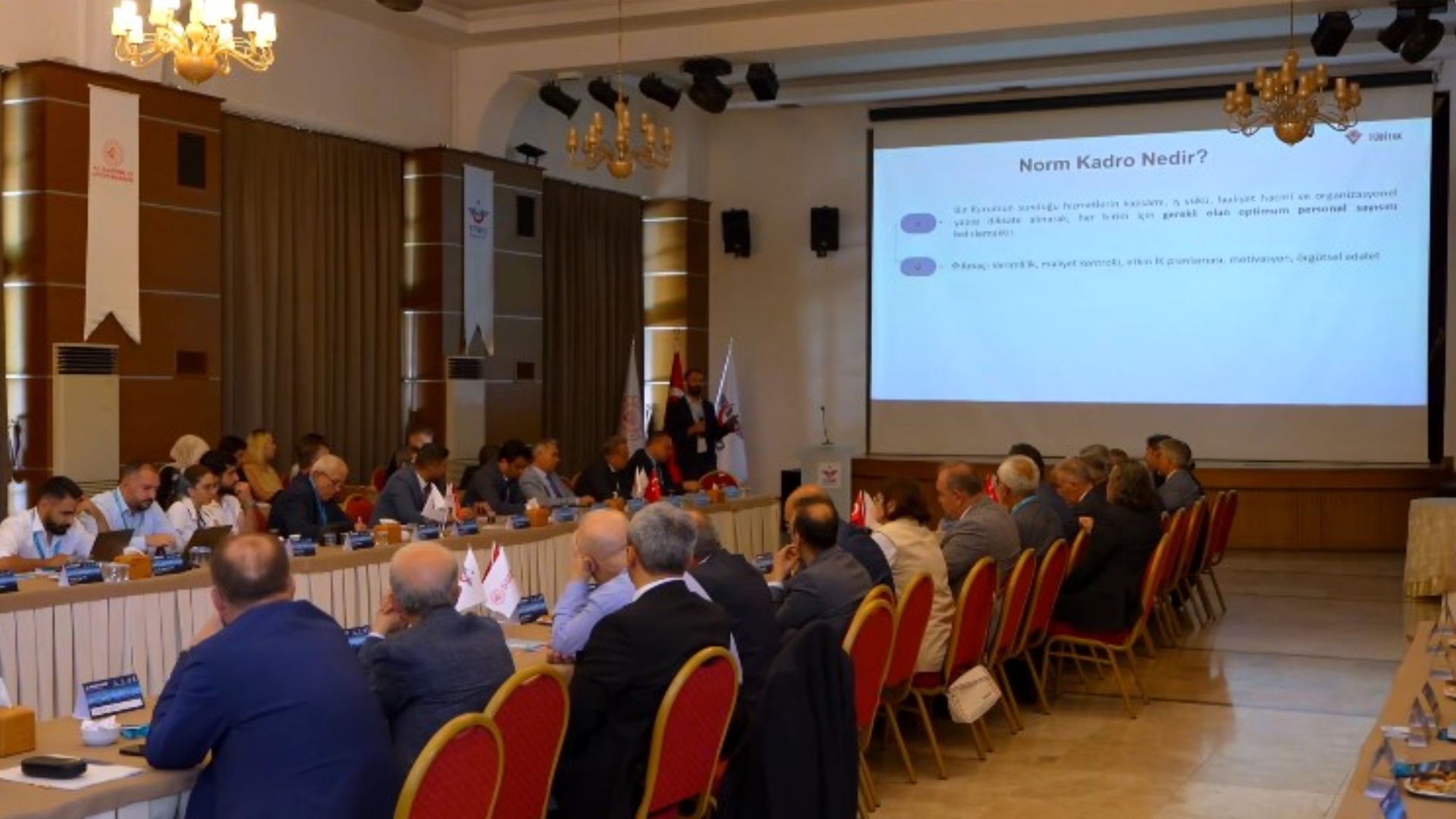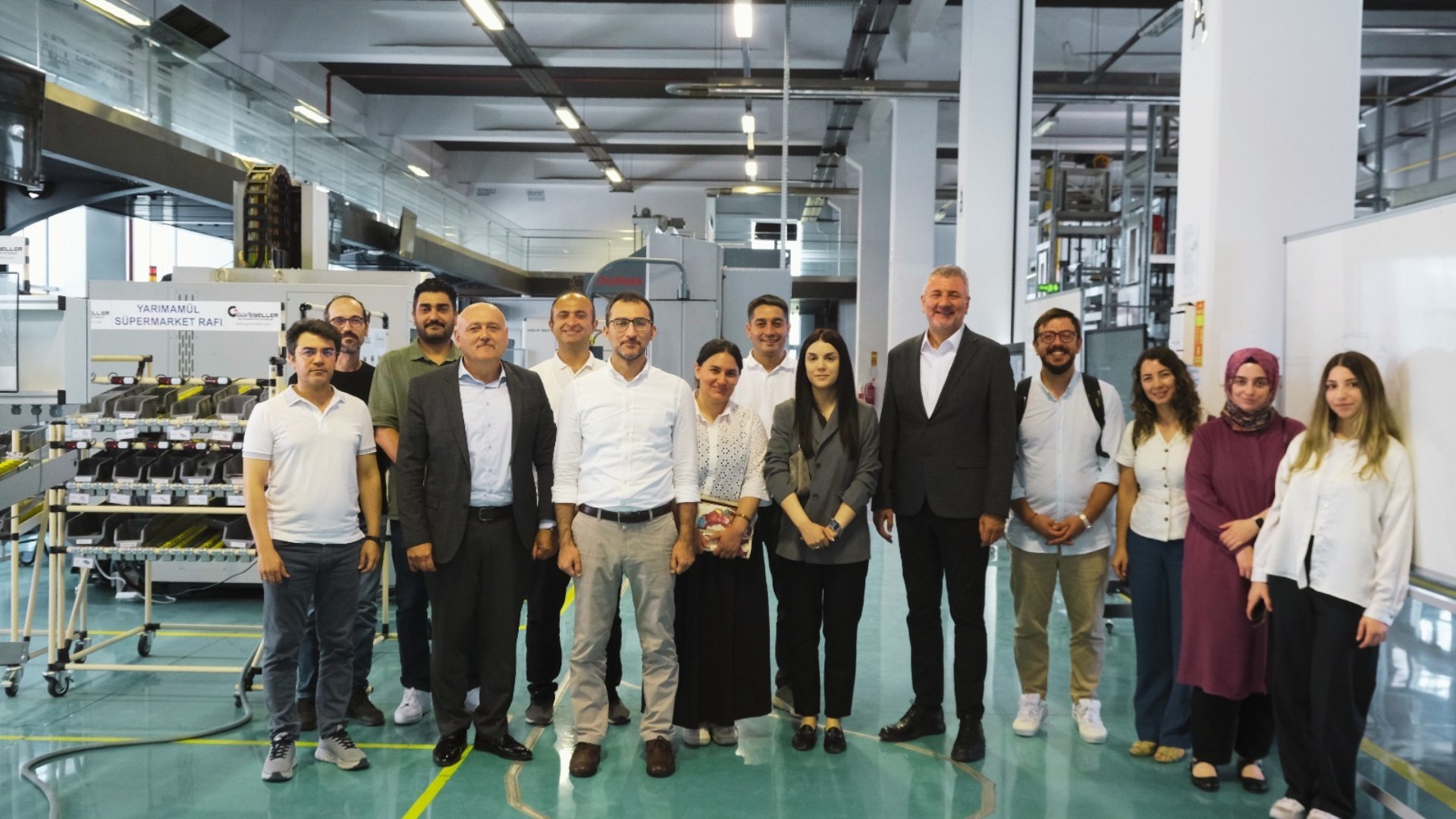The starting ceremony of the National Solar Power Plant Technology (MİLGES), National Hydroelectric Power Plant Technology (MİLHES), High Voltage Direct Current Technology (YGDA) and National Turbine Blade Technology (MİLKANAT) projects was attended by the Minister of Science, Industry and Technology Fikri Işık, the Minister of Energy and Natural Resources. Taner Yıldız, TÜBİTAK Vice President Prof. Dr. It was held with the participation of Mehmet Çelik and institution managers.
Speaking at the opening ceremony, Minister of Energy and Natural Resources Taner Yıldız stated that all of Turkey's domestic resources and renewable energy sources should be opened very quickly and emphasized that the energy sector should grow faster than the country's economic growth figures.
“We Will Produce with Our National Resources”
Stating that while supporting domestic resources and domestic production, attention should be paid to investment expenditures that will have a negative impact on the current account deficit, Minister Yıldız said, “In Turkey, we invest approximately 12 billion dollars, sometimes 8-9 billion dollars annually, including production, distribution and all equipment. "If we have created this market and such a demand, the supply must be created together with our national resources," he said.
Stating that production can be made even if it is above the import cost, if necessary, for the development of domestic production, Yıldız said, “If it is necessary to produce domestically, if it is necessary to take a national stance, it is not only the Ministries of Energy and Industry that are indebted to this. "Academics, intellectuals, private sector, industrialists," he said. Touching on the issue of nuclear energy, Yıldız said:
“3. “The Construction of the Nuclear Power Plant Will Be Completely Domestic Production”
“We deliberately stopped the current market for 3rd nuclear power plants. To ensure that these can be done together with our local engineers and production. 8 units will be built by approximately 2025-26. Approximately 9 thousand 600 megawatt power plants will be commissioned. Meanwhile, the construction of the 3rd nuclear power plant will be based entirely on domestic production. Therefore, we can only evaluate the reverse brain drain when this market is formed. Saying 'come earlier' is not very realistic. "Hopefully, Turkish scientists and employees trained in nuclear power plants in America, Canada and other countries around the world will return to Turkey."
In his speech, Minister of Science, Industry and Technology Fikri Işık stated that the National Wind Energy Systems Development and Prototype Turbine Production (MİLRES) project has reached the completion stage and that if the national wind power plant is ready, they will erect it this month and wind energy will start to be produced.
Stating that it would not be enough for Turkey to be a country that only uses technology, Işık said that the only way to exist in the world of the future is to produce technology.
“MİLRES Project Has Reached the Completion Stage”
Explaining that they have developed other projects with the Ministry of Energy and Natural Resources in addition to the MİLGES, MİLHES, YGDA and MİLKANAT projects, Işık said, “The MİLRES project is nearing completion, hopefully we will erect it soon. "If the national wind power plant, whose capacity can easily be increased up to 1.5 megawatts, is completed, we will erect it on the pole within this month and the first national wind turbine will start producing wind energy," he said.
“We are 85 percent dependent on foreign sources of energy”
Noting that Turkey's energy consumption has doubled since 2002, Işık said, “It is clear that we will need twice as much energy in 2023. Unfortunately, we are 85 percent dependent on foreign energy. The main reason for the current account deficit is our energy imports. "If Turkey had met its energy with its own means, the country's growth would have been at least 2 percent higher," he said. Işık emphasized that the energy sector is an extremely critical sector, not only in terms of production and supply security, but also in minimizing foreign dependency and developing domestic technologies.
Işık stated that TÜBİTAK is the country's most important power source in terms of domestic and green production. Underlining that whatever is produced on a scale basis should be local, innovative and green, Işık pointed out the importance of adopting R&D and innovation as a lifestyle.
Stating that they want TÜBİTAK to become the most important project management institution in Turkey, Işık also said that they will pave the way for the institution to become a strong integrator organization and conduct R&D together with the market and the private sector.
Reminding that they established an Energy Specialized Industrial Zone in Konya Karapınar in 2012 in order to increase energy production from renewable sources in Turkey, Işık stated that they are currently evaluating applications to establish an Energy Specialized Industrial Zone in Niğde and Karaman.
“Türkiye will be able to stand on its own feet in the electrical energy sector”
TÜBİTAK Marmara Research Center (MAM) President Bahadır Tunaboylu said that a strong cooperation was achieved between the public, private sector and university with 4 projects. Pointing out that the projects, which are of great importance in terms of Turkey's production of its own electrical energy, will also contribute to reducing the current account deficit, Tunaboylu said:
“With the 158 million lira project investment to be carried out within our center and the intensive applied R&D studies that will last for 6 years, Turkey will be able to stand on its own feet in the electrical energy sector. "In our country, where it is planned to establish a 3 thousand megawatt solar power plant with the target 2023 vision, it is aimed to contribute 7.5 million liras to the budget with the MİLGES project."
Tunaboylu also stated that university research centers build academic knowledge by actively participating in projects.
After the speeches, Minister Işık and Minister Yıldız signed the cooperation protocol regarding the energy investments to be made in the Karapınar Energy Specialized Region.






